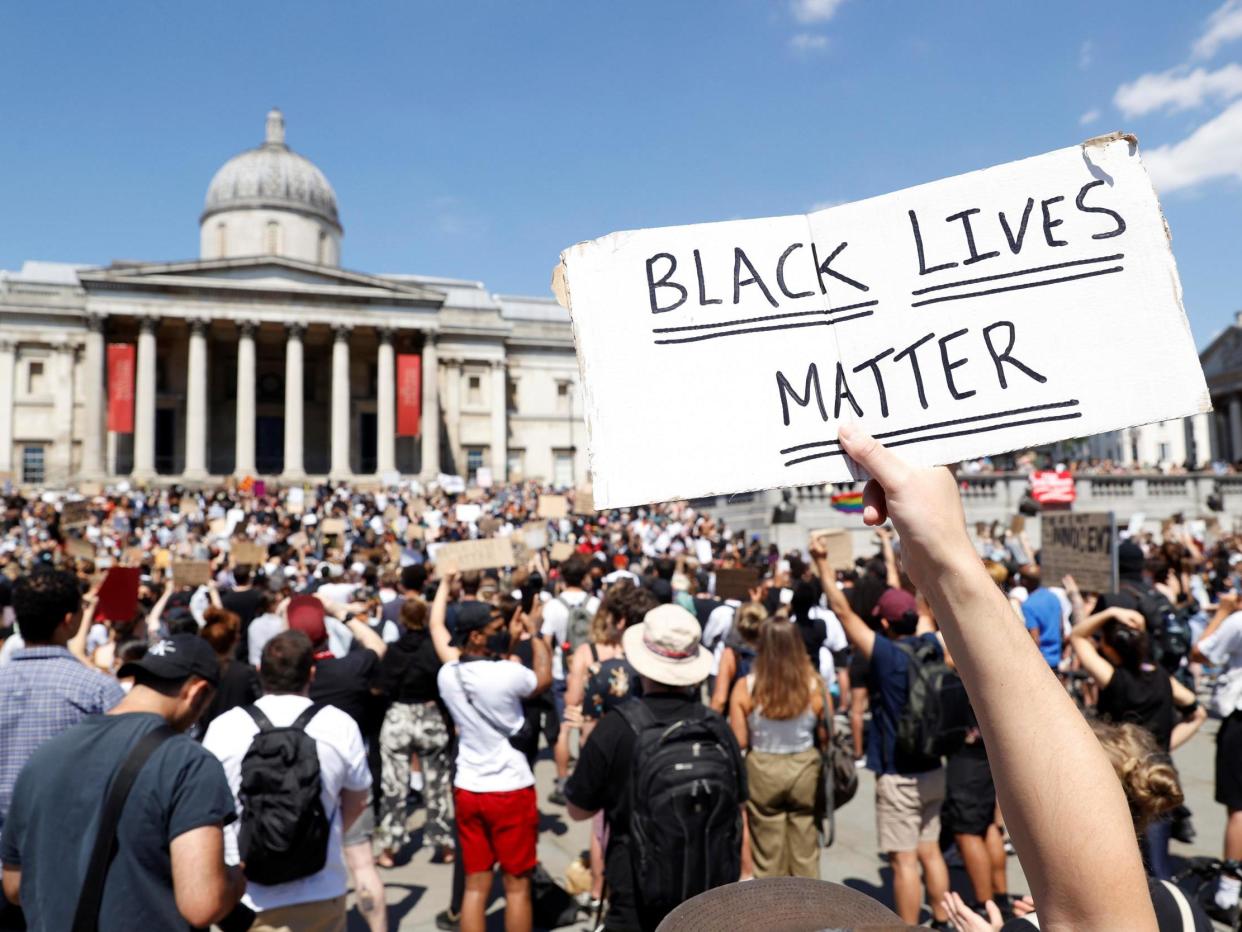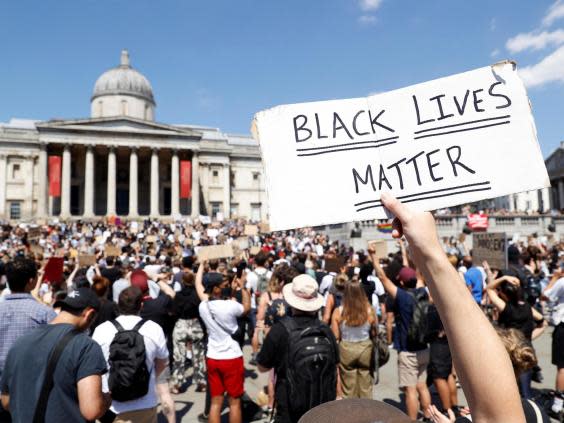British police must respond to concerns of George Floyd protesters, warns watchdog

British police must respond to “real and growing concerns” about racism within their own ranks, a watchdog has said, as protests continued across the UK in the wake of the killing of George Floyd in the US.
The director general of the Independent Office for Police Conduct (IOPC), which investigates deaths in custody in England and Wales, and allegations of police brutality and corruption, urged officers to listen to the black community.
Michael Lockwood also highlighted issues in British policing that were disproportionately affecting ethnic minorities, including the use of Tasers, stop-and-search powers and, in recent weeks, fines for breaching the coronavirus lockdown.
Thousands of protesters have taken to the streets across the UK to protest over Mr Floyd’s death and wider racism as part of the Black Lives Matter movement.
After a peaceful rally in Hyde Park on Wednesday, where Star Wars actor John Boyega was among those to speak, a small number of demonstrators clashed with police outside Downing Street.
Footage showed objects including signs and a traffic cone being thrown at police, hours after some Metropolitan Police officers were seen “taking a knee” in a show of solidarity.
An Australian television reporter was filmed abandoning his live broadcast to flee as he was verbally abused and chased.
Writing in The Independent, Mr Lockwood said it was “incumbent on the wider police service to listen and respond to the concerns being raised”.
“Right now, communities in the UK are expressing real and growing concerns about disproportionality,” he added.
“Only two weeks ago we highlighted increasing community concerns about the use of Taser.
“We are also hearing concerns about stop and search and, most recently, fines issued during lockdown being disproportionate to black people.
“There must be more research to understand issues of disproportionality, as well as assurance and scrutiny around tactics like use of force and stop and search.”
In the year to March 2019, 16 per cent of police use-of-force incidents in England and Wales were against black people, who only make up 3.3 per cent of the population.
Black people were also involved in 25 per cent of police firearms incidents and a fifth of “less lethal weapons” incidents, including Tasers.
According to analysis of official statistics by the Inquest charity, there have been 1,741 deaths in police custody, or following contact with officers, in England and Wales since 1990.
Of those who died, 14 per cent were black and minority ethnic, which is proportionate to the population as at the 2011 census.
“However, Bame people die disproportionately as a result of use of force or restraint by the police, raising serious questions of institutional racism as a contributory factor in their deaths,” a report by Inquest said.
Mr Floyd died after a white officer held him down by pressing a knee into his neck in Minneapolis on 25 May, sparking days of protest in the US that escalated into riots and looting in some cities.
The US president, Donald Trump, has pressed state governors to take a more forceful approach against protesters, prompting outspoken political resistance, including from his former defence secretary James Mattis.
Boris Johnson said he was ”sickened“ to see what happened to Mr Floyd, while British police leaders issued a joint statement saying they ”stand alongside all those across the globe who are appalled and horrified”.
Mr Lockwood said that Britain has a “strong and very different system of police accountability to that in the US”, which does not have an equivalent national body that independently investigates deaths caused by officers.
“It is not a perfect system and there is still much room for improvement, but it is a system based on independent scrutiny, accountability and learning,” he added.
“When someone is seriously injured or there is a death following police contact, the IOPC will investigate. It is of critical importance that we analyse the circumstances of each and identify if there are lessons to be learnt in the hope we can prevent future deaths from occurring.”
The IOPC, formerly the Independent Police Complaints Commission, was set up following the inquiry into the racist murder of black teenager Stephen Lawrence and the way it was investigated.
In 1999, the Macpherson report concluded that institutional racism existed “both in the Metropolitan Police and in other police services and other institutions countrywide”.
Mr Lockwood said progress had been made on British policing practice, policies and training but that there was “more to do”.
“Our commitment remains to work with those who share a common desire for systemic and cultural change so we do not repeat mistakes from the past,” he added.
In a joint statement, British policing leaders previously vowed to “tackle bias, racism or discrimination wherever we find it”.

Leaders of the National Police Chiefs’ Council, the College of Policing and the Police Superintendents’ Association said they were “horrified” by Mr Floyd’s death and called for justice.
“The relationship between the police and the public in the UK is strong but there is always more to do,” they added. “Officers and staff are working to strengthen those relationships and address concerns.”
The College of Policing, which is the professional body for forces in England and Wales, has given training to US police in the past.
There are mounting calls for the British government to stop sales of UK-made teargas, rubber bullets and riot shields to American police amid alleged brutality against protesters.
Minneapolis was set to hold an emotionally charged memorial service for Mr Floyd on Thursday, after protests dwindled elsewhere following charges against four police officers implicated in the killing.
Further services for Mr Floyd are to stretch across six days and three US states, with a funeral planned for Tuesday.
Read more
All the anti-racism protests happening in the UK this week

